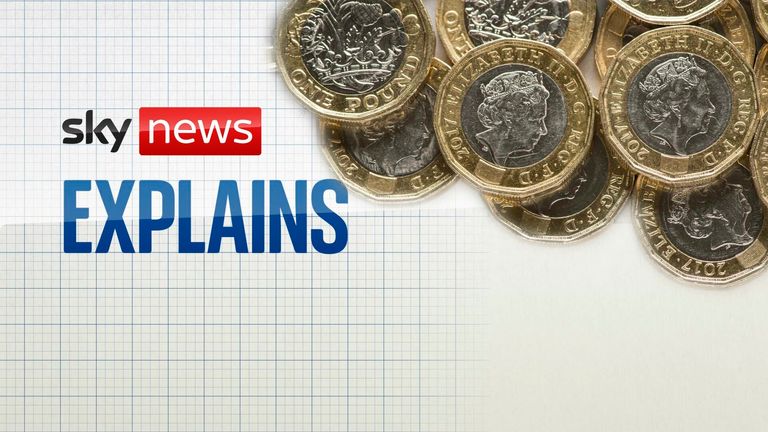Millions face average £693 energy bill hike – but Sunak offers £350 help
Millions of households will see their energy bills rise to a typical £1,971 a year – prompting Rishi Sunak to announce a £350 package of help.
The 54% increase announced by regulator Ofgem, which will on average see bills for customers paying by direct debit with default variable gas and electricity tariffs rise by £693, will take effect in April and follows a 12% rise in October.
Those using prepayment meters – around 4.5 million customers – will see a typical increase of £708 to £2,017.
Sunak gives statement on bill help for households – follow live
In all, 22 million households are covered by the hikes.
Immediately after the announcement, chancellor Rishi Sunak responded by announcing a plan to ease the pressure on households with £350 of support including £200 off energy bills – to be repaid over five years from next year – and a £150 council tax discount.
Surging wholesale gas prices – currently about four times higher than at the same time last year – have driven the increase.
It also includes a £68 charge to cover the cost of protecting millions of customers whose energy suppliers have collapsed in recent months.
Ofgem said it would tomorrow announce new measures “to help the energy market weather future volatility” including enabling the regulator to adjust the price cap more frequently than every six months “in exceptional circumstances” to ensure that it “still reflects the true cost of supplying energy”.
The price cap hike adds to a cost of living squeeze for households who are also facing higher shop prices, an increase in national insurance, and rising interest rates.
Analysts think it could go up even more in the autumn when Ofgem reviews the cap again.
Among those affected by the latest price cap hike will be former customers of the 29 energy suppliers that have collapsed in the wake of the wholesale gas price surge, affecting a total 4.3 million domestic users.
Ofgem chief executive Jonathan Brearley said: “We know this rise will be extremely worrying for many people, especially those who are struggling to make ends meet, and Ofgem will ensure energy companies support their customers in any way they can.
“The energy market has faced a huge challenge due to the unprecedented increase in global gas prices, a once in a 30-year event, and Ofgem’s role as energy regulator is to ensure that, under the price cap, energy companies can only charge a fair price based on the true cost of supplying electricity and gas.
“Ofgem is working to stabilise the market and over the longer term to diversify our sources of energy which will help protect customers from similar price shocks in the future.”
What is the energy price cap?
The energy price cap sets the maximum figure that can be charged to customers on a variable dual-fuel rate for typical usage of gas and electricity for a six-month period.
Introduced in 2019 it is based on a number of factors including the wholesale cost of power in the previous six months.
The price cap is not the maximum that anyone can be charged – customers with high energy usage will have higher bills – but rather reflects typical usage levels.



